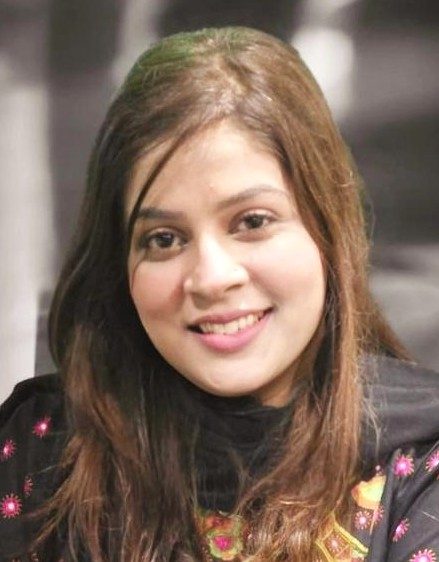
By Syeda Tehseen Abidi
In 2025, Prime Minister Shehbaz Sharif made a strategic decision by appointing Bilawal Bhutto Zardari, chairman of the Pakistan People’s Party (PPP), to lead a newly formed international committee aimed at reshaping Pakistan’s global image. This move signaled trust in a young leader who has evolved into one of Pakistan’s most important diplomatic voices, particularly in times of regional crisis. Bilawal’s leadership came to the forefront during heightened tensions between Pakistan and India. Instead of reacting with aggression, he chose diplomacy and dialogue, engaging international media outlets such as BBC, Al Jazeera, and CNN to present Pakistan’s position calmly and firmly. His articulate responses not only countered hostile narratives but also portrayed Pakistan as a rational, peace-seeking nation under pressure, distinguishing him from the usual reactive political rhetoric.
His fluency in engaging diverse global audiences is rooted in years of experience and exposure. As Foreign Minister from 2022 to 2023, Bilawal traveled to over two dozen countries, representing Pakistan in forums like the United Nations and the World Economic Forum. His blend of youthful energy, Western education, and deep political legacy has helped him connect with global leaders while safeguarding Pakistan’s core interests. More than just a spokesperson, Bilawal’s diplomacy carries symbolic weight. At a major rally in Mirpurkhas, he notably raised Pakistan’s national flag above partisan banners, signaling his loyalty first to the nation. This moment captured his vision of unity and nationhood, emphasizing that his leadership transcends party politics in pursuit of Pakistan’s global stature.
Bilawal’s international role is part of a legacy shaped by his grandfather, Zulfikar Ali Bhutto, and his mother, the late Benazir Bhutto—both towering figures in Pakistan’s diplomatic history. He inherits their mission to defend Pakistan’s dignity on the world stage, but with a modern, more structured approach. Under his stewardship of the international engagement committee, He is moving from reactive diplomacy to proactive strategy. His focus is on building lasting diplomatic frameworks within Pakistan’s political system. This includes formal outreach to think tanks, diplomatic missions, diaspora communities, and parliamentary forums. By institutionalizing dialogue, he aims to ensure Pakistan’s voice is heard not just in times of crisis but continuously in global conversations on policy, trade, climate, and development.
A key aspect of his vision is democratizing foreign policy. Bilawal insists that diplomacy should no longer be confined to the military or executive branches but shaped through elected leadership and public consensus. Within his party, he has advocated for a Foreign Relations Secretariat to maintain continuity in Pakistan’s international engagement beyond political cycles. This echoes his grandfather’s foresight in establishing enduring international relationships. Bilawal also embraces “people-to-people diplomacy,” engaging civil society, youth leaders, academic networks, and student organizations abroad. For example, during his visit to the European Parliament, he met Pakistani-origin youth leaders alongside official delegates, highlighting his understanding that identity, perception, and influence are critical in today’s multipolar world.
Digitally savvy, Bilawal’s team is developing a Digital Pakistan Diplomacy Portal to document international engagements, policy positions, and counter disinformation in real time. This reflects an awareness that today’s diplomatic battles are fought not only with words but with narratives and data control. Unlike the fiery displays of his grandfather or the charismatic charm of his mother, his style is measured, policy-driven, and multi-dimensional. He recognizes that 21st-century diplomacy requires long-term strategy, networks, and narrative control rather than dramatic gestures. Perhaps most importantly, he has distinguished himself as a leader of crisis restraint during critical moments. When tensions with India escalated dangerously, he worked closely with Pakistan’s military and intelligence to synchronize diplomatic messaging with strategic deterrence.
His public statements balanced firmness with openness to dialogue, a rare and necessary approach in Pakistan’s often rigid foreign policy environment. During the Kashmir flare-up, Bilawal’s outreach was comprehensive. He engaged European ministers, UN envoys, and South Asian diplomats through calls and virtual summits, while simultaneously leading a media campaign that emphasized Pakistan’s commitment to peace and underscored its rights under international law. His approach embodies a modern version of “soft power with steel.” He understands that Pakistan must project strength not only militarily but morally and intellectually. He frequently highlights Pakistan’s contributions to UN peacekeeping missions, climate change commitments, and humanitarian efforts as foundations of its international credibility.
Under Bilawal’s guidance, Pakistan’s diplomatic missions, especially in Washington, have been revitalized, and outreach to ASEAN and African Union nations intensified. Pakistan has moved from being a reactive participant in multilateral forums to a proactive agenda-setter. Critics point to Pakistan’s internal political instability as a barrier to sustained diplomatic success. Bilawal counters this by stressing that foreign policy is a national asset, not a partisan one. His insistence on bipartisan support for international engagement reflects the legacy of his mother, Benazir Bhutto, who believed Pakistan’s global standing requires unity at home.
This internal cohesion, Bilawal Bhutto Zardari acknowledges, is as crucial as any external summit negotiation. His ability to bridge domestic divides will be pivotal in sustaining Pakistan’s diplomatic progress. He has thus transcended the image of a political heir or opposition leader. He is emerging as a pivotal architect of Pakistan’s foreign policy, blending legacy, education, and strategic vision. In an era where information shapes power and narratives influence sovereignty, his efforts to institutionalize diplomatic engagement and counter disinformation mark a turning point. Pakistan’s international voice has long been complex and contested. Under Bilawal’s leadership, it is becoming clearer, stronger, and more resilient—positioned to claim its rightful place on the global stage not by volume, but by strategic presence and sustained influence.
(The writer is Sindh’s government spokesperson, has expert views on politics and political approach of the approach, can be reached at news@metro-morning.com)



